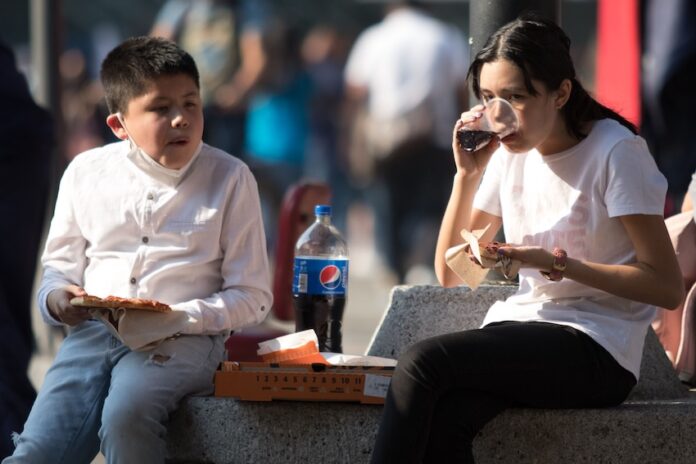More than a decade after Mexico became one of the first countries to impose a tax on sugary sodas, the Health Ministry is set to launch a new campaign aimed at discouraging their consumption.
“Sometimes we think that health is only about care when we get sick and go to a health center or hospital,” President Claudia Sheinbaum said in announcing the campaign during her daily press conference on Tuesday. “[However,] health is related to care, prevention and particularly sugary drinks, soft drinks.”
Despite the tax, implemented in 2014, soft drink consumption is still excessive in Mexico, and the campaign will emphasize public education. Health Minister David Kershenobich said at the conference that Mexicans drink an average of 166 liters of soda per year, putting Mexico among the top countries for sugary drink consumption globally.
Seven in 10 children and adolescents consume soft drinks daily, even with breakfast, according to Kershenobich. He stressed that high levels of soda consumption are linked to the development of diabetes and cardiovascular disease, with a single 600 ml soda containing between 12 and 15 teaspoons of sugar.
In 2024, 190,000 deaths in Mexico were attributed to heart disease and 112,000 to diabetes.
“One wonders if we have a way to treat these people because we continue to have such a high mortality rate,” said Kershenobich. “And that’s where preventive programs come in.”
The Health Ministry plans to implement prevention campaigns focused on healthy consumption and education on nutrition from early childhood starting next week.
Programs such as the government’s “Live Healthy, Live Happy” initiative, which was launched by Sheinbaum on Feb. 25 to reduce the consumption of junk food and sugary drinks among children, are key to changing societal habits and tackling chronic diseases, according to Kershenobich.
Will the soda tax increase?
The emphasis at the press conference was on education, not taxation. But health experts from various institutions recommend introducing higher taxes on sugary drinks to reduce their consumption.
Judith Senyacen Méndez, the deputy director of research at the Center for Economic and Budgetary Research, said that introducing a 20% tax on the drinks could drive down consumption by between 16% and 19%, based on empirical evidence.
Meanwhile, Iván Bremeunea, the coordinator of the Fundar Center of Analysis and Research’s Tax Justice Program, said a 20% tax could reduce obesity cases by up to 970,000, in addition to generating annual revenue of over 104 billion pesos (US $2.5 billion).
While Mexico’s one-peso-per-liter soda tax (about 10%) did in fact reduce consumption at first, Bremeunea said that the current levy is no longer effective and must be increased. He said that even a further 6% increase in soda prices could reduce obesity rates by 3.2%.
With reports from Instituto Mexicano de la Radio Noticias, Meganoticias, El Universal and El Economista
